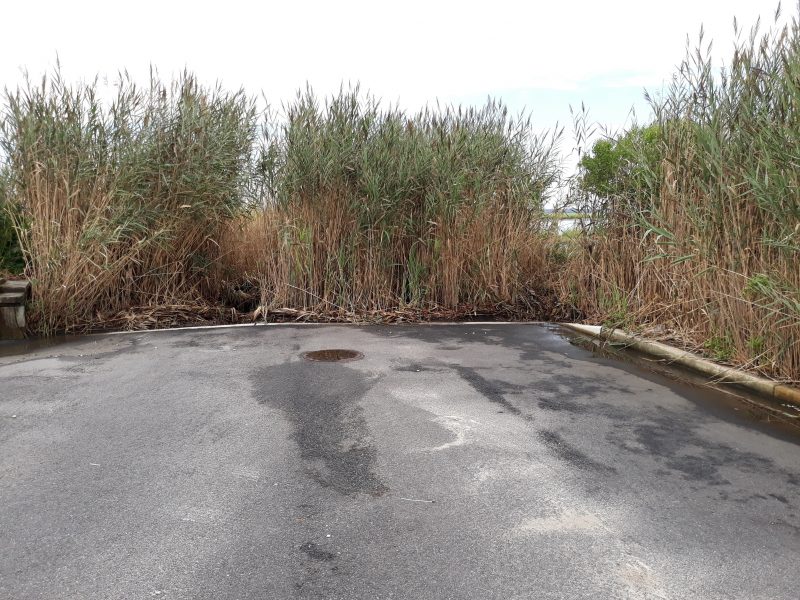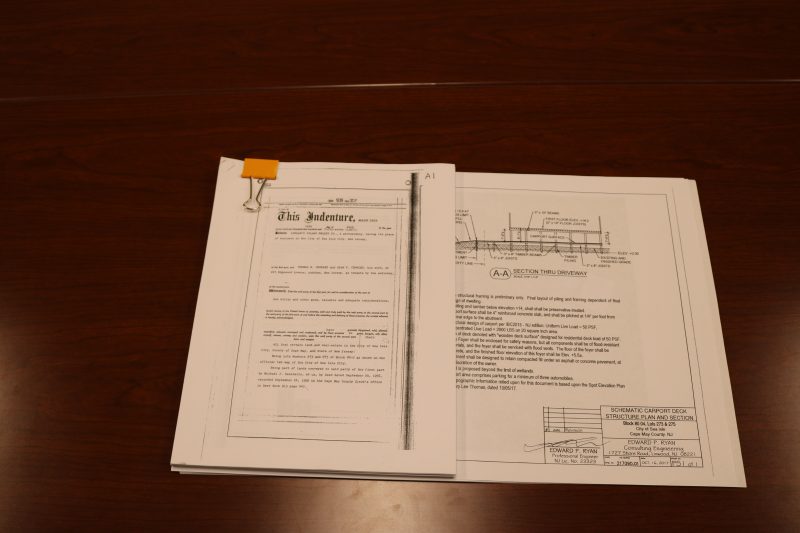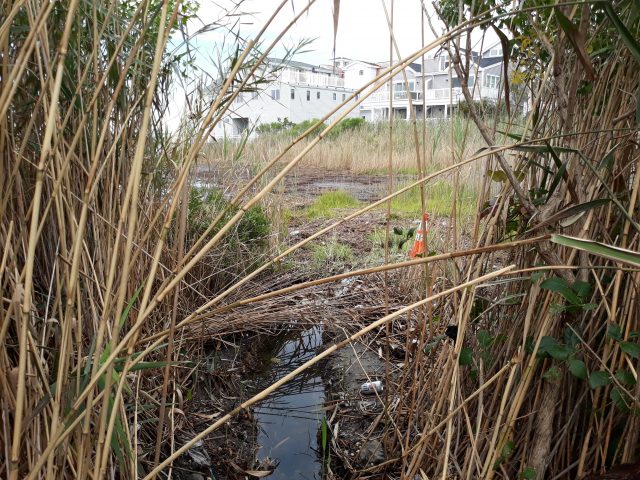By DONALD WITTKOWSKI
The state Superior Court has upheld a decision by Sea Isle City’s zoning board denying an application by property owners who wanted to build a single-family home on a site that partially falls within a wetlands conservation zone.
The ruling comes in a lawsuit filed last year by Shirley A. Kling and Terrance L. Crowley that alleged the zoning board was “arbitrary, capricious and unreasonable” in its decision to reject a zoning variance that was needed to build the vacation home at the bay end of 81st Street.
The Kling and Crowley property, owned by the families since 1957, is tucked behind tall marsh reeds at the end of 81st Street in Sea Isle’s Townsends Inlet section. Kling and Crowley own two adjacent bayfront lots. They want to build on one lot and keep the second lot vacant.
In a 5-1 vote at a meeting in June 2019, the zoning board members refused the request for a variance after expressing concerns about flooding in the neighborhood. They also said they did not want to set a precedent by allowing a new home to be built in a wetlands conservation area.
Under Sea Isle’s zoning laws, areas that are designated for wetlands conservation are restricted to “recreational fishing and crabbing, boating, passive recreation and environmental study.” Home construction is not allowed in those areas.
The suit claimed that the project “satisfied all criteria” for a variance and would not have a negative impact on wetlands, flooding, threatened or endangered wildlife or other environmental concerns.
Paul Baldini, Sea Isle’s city solicitor, said in an interview Wednesday that the Superior Court denied Kling and Crowley’s request to overturn the zoning board’s denial and grant the variance.
Richard M. Hluchan, the attorney who filed the suit for Kling and Crowley, could not be reached for comment.
The zoning board’s vote last year culminated a lengthy meeting that included intense opposition to the variance by homeowners in the neighborhood.
Amid the packed meeting room at City Hall, opponents lined up to testify against the proposed project. The line stretched out the door and into the hallway.

Prior to coming before the zoning board, Kling and Crowley had obtained approvals from the New Jersey Department of Environmental Protection and the U.S. Army Corps of Engineers to build a single-family home on the same site, according to the suit.
The DEP had previously denied granting a permit for residential construction on the land, but reconsidered after the families appealed.
In addition to naming the zoning board in their suit, Kling and Crowley also sued the city of Sea Isle. That part of the litigation remains alive as both sides debate whether the city should have to compensate Kling and Crowley for their property, Baldini said.
The suit focuses on an issue known as “inverse condemnation.” It is a legal term to describe when government takes private property but fails to pay the required “just compensation” for the land.
Kling and Crowley allege that the city has effectively condemned their land by not allowing them to build on it and should pay them for the property, Baldini said.
Baldini said the city is disputing those allegations. He maintained the city has not rendered the land useless because Kling and Crowley are still allowed to use the property for recreational purposes such as fishing, crabbing and boating within the wetlands conservation zone.
The lot that they have proposed to develop for their vacation home is unusual because half of it is zoned for housing construction, while the other half lies within in the wetlands conservation area.
Meanwhile, the court has delayed ruling on the “inverse condemnation” issue while both sides try to work out a settlement.
“We’ve been talking,” Baldini said.
The settlement talks include the possibility that the city, along with Kling and Crowley, would apply to the Cape May County Open Space Review Board to have the board buy the land and preserve the site for open space, Baldini said.









